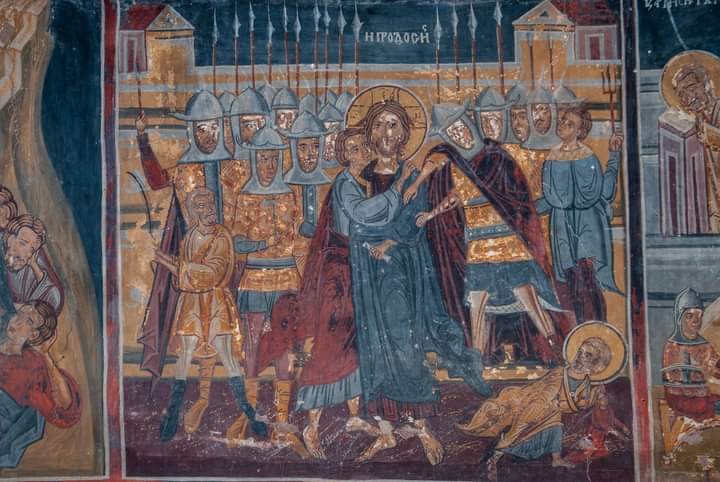The Ninth All-Russian Scientific and Practical Conference, organized by the Russian Orthodox Church in collaboration with the Federal Penitentiary Service of Russia, took place at the Academy of the Federal Penitentiary Service in early November. This event was part of a broader International Scientific and Practical Conference dedicated to criminal punishment reforms and marked the 90th anniversary of the Academy. The primary focus of the gathering was the establishment of a probation system in Russia and the development of specialized roles to support detainees’ spiritual needs.
Participants and Leadership
The conference brought together a diverse group of participants, including clergy from religious organizations traditional to Russia, public organizations assisting prisoners, faculty from the Academy, and individuals recently released from incarceration. Key attendees included Sergei Gurov of the Federal Penitentiary Service’s Supreme Court Department, religious assistants to penitentiary heads, and clergy dedicated to prison ministry. The forum was chaired by Priest Kirill Markovsky, the acting head of the Synodal Department for Prison Ministry.
Highlights of the First Section
The first section addressed the rollout of a penitentiary probation system starting January 1, 2024, and post-penitentiary probation beginning January 1, 2025. Prior to the discussions, Father Kirill awarded several individuals for their contributions to prison ministry and prisoner rehabilitation. Among the honorees were Priest Andrei Mnatsaganov of the Spas charity shelter, Archpriest Vladimir Menshoikin of the Saransk Diocese, and Emelyan Sosinsky, leader of the “Noah” House of Diligence.
In his opening remarks, Father Kirill underscored the significance of the Church’s collaboration with the penal system, emphasizing its mission to help individuals in prison or recently released transition to a meaningful, law-abiding life. He noted that probation offers state support to those in crisis but stressed that social reintegration is impossible without fostering fundamental spiritual changes. He called for efforts to begin within pretrial detention centers, targeting the inner transformation of convicted individuals to lay a foundation for lawful and purposeful lives post-release. “If this spiritual work fails,” he cautioned, “our broader efforts may fall short.”
Father Kirill also highlighted the Church’s extensive experience in addressing the spiritual needs of inmates and acknowledged the cooperation between penitentiary administrators and clergy. However, he noted that some clergy lack the necessary proactivity in their prison ministry roles, urging department heads to mentor priests and ensure they fully utilize their spiritual mandate. He emphasized the importance of pastoral duties extending beyond liturgical services to include educational programs, psychological support, and collaborative efforts with lay specialists and penitentiary staff.
Contributions from Clergy and Experts
Several speakers shared their experiences and insights:
– Archpriest Oleg Skomorokh, assistant to the Federal Penitentiary Service in St. Petersburg, discussed the Church’s involvement in implementing Russia’s probation law. He highlighted the systemic approach to rehabilitating and socially reintegrating individuals under probation and emphasized the Church’s role in partnership with non-profit organizations.
– Archpriest Evgeny Lishchenyuk from Voronezh spoke about assisting former convicts, particularly those recovering from alcohol and drug addiction.
– Priest Andrei Mnatsaganov described his work at the Spas halfway shelter, which provides housing and support for those transitioning to a law-abiding life after release.
– Emelyan Sosinsky detailed the operations of Noah House, a network of social and labor homes in the Moscow Region that aids over 1,200 individuals, helping them find work, build families, and rediscover purpose.
Focus on Spiritual Assistance in Pretrial Detention
The second section of the conference explored the establishment of full-time clergy positions in pretrial detention centers, a reform that took effect on January 1, 2024. Father Kirill described these clergy members as pioneers in a challenging yet vital dual role as both spiritual leaders and officials. He noted that ministering in pretrial settings requires unique skills, as detainees come from varied backgrounds and face different charges, ranging from minor offenses to severe crimes. Clergy must be prepared to provide spiritual guidance to men, women, and minors alike.
Father Kirill called for enhanced training programs for prison chaplains, advocating for the inclusion of mentorship by experienced clergy and specialized pastoral education tailored to the demands of ministering in detention settings.
Sergei Gurov provided an overview of legislative norms and the specific responsibilities of prison chaplains, while Archpriest Oleg Skomorokh and Imam-Khatib Insaf-khazrat Iskandarov shared insights on spiritual care in detention centers, including the prevention of extremism among inmates.
A Platform for Collaboration
The conference served as a platform to share best practices in providing spiritual and social support to prisoners and those recently released. It also highlighted key challenges and areas for improvement in prison ministry. The event unders














Leave a Reply